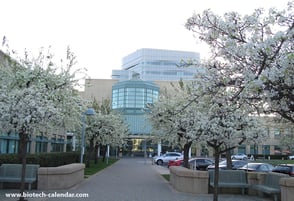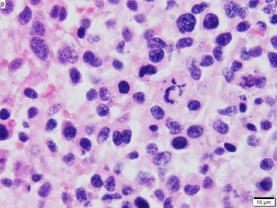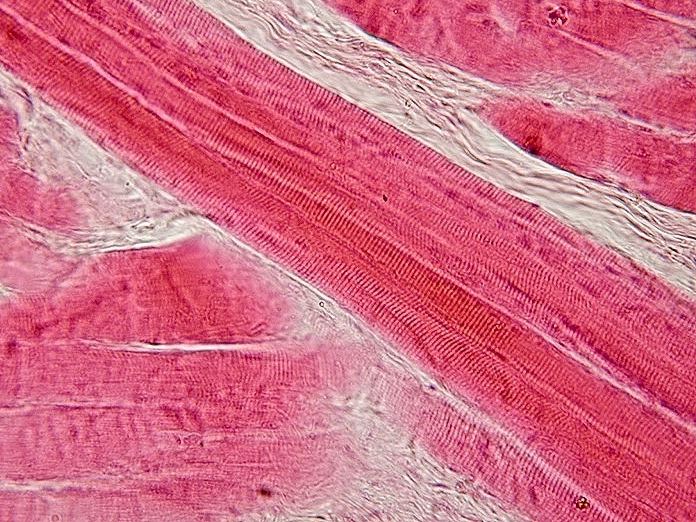 Like most forms of cancer, brain cancers are frequently treated with chemotherapy and radiation therapy. Although these treatments can be effective, many times they are not. Scientists around the world study different types of brain cancers to develop new treatment methods.
Like most forms of cancer, brain cancers are frequently treated with chemotherapy and radiation therapy. Although these treatments can be effective, many times they are not. Scientists around the world study different types of brain cancers to develop new treatment methods.
Tags: CA, University of California San Diego, cancer research, SDVS, UCSD, Biotechnology Vendor Showcase Event, 2018, Zika virus, Brain cancer
 In the state of California, more than 176,000 residents arediagnosed with cancer each year and more than $14 billion is spent to fight this disease in California alone. The University of California system has five of the top cancer centers in the country within theseacademic institutions. In September these five UC cancer centers announced that they were teaming up to form a cancer consortium to provide researchers and physicians in California more opportunities to further their work on cancer-related topics. (Image courtesy of Wikimedia Commons)
In the state of California, more than 176,000 residents arediagnosed with cancer each year and more than $14 billion is spent to fight this disease in California alone. The University of California system has five of the top cancer centers in the country within theseacademic institutions. In September these five UC cancer centers announced that they were teaming up to form a cancer consortium to provide researchers and physicians in California more opportunities to further their work on cancer-related topics. (Image courtesy of Wikimedia Commons)
Tags: cancer research, University of California, LAVS, SDVS, UCDMC, SFVS, BioResearch Product Faire Event, UCI, Biotechnology Vendor Showcase Event, 2018
 Lymphoma is one of the most common types of cancer, with Non-Hodgkin Lymphoma making up about 4% of all cancer cases in the United States, according to the American Cancer Society. Although treatment methods like chemotherapy and radiation therapy are able to treat the cancer, researchers still actively study this cancer to gain a better understanding of it to develop new targeted treatment methods.
Lymphoma is one of the most common types of cancer, with Non-Hodgkin Lymphoma making up about 4% of all cancer cases in the United States, according to the American Cancer Society. Although treatment methods like chemotherapy and radiation therapy are able to treat the cancer, researchers still actively study this cancer to gain a better understanding of it to develop new targeted treatment methods.
Researchers from the Center for Cell and Gene Therapy at Baylor College of Medicine, Texas Children's Hospital and Houston Methodist Hospital have been studying new therapies for the cancer using T-cells, research that they will continue with the assistance of a new $11.5 million grant from the National Cancer Institute. (Image courtesy of TexasPathologistMSW ia Wikimedia Commons)
Read MoreTags: new research funding, cancer research, Texas Medical Center, tmc, Houston, TX, NIH funding, 2018, Lymphoma, Baylor College of Medicine

For cancer patients with tumors, there always a risk of the tumor spreading to a different organ, which makes fighting the cancer more difficult and risky. However, this spread of cancer very rarely occurs on skeletal muscles, which make up nearly 50% of body mass. Why don't these metastatic cancer cells move to and grow on these skeletal muscles? Researchers are still unclear. Now, with the help of a recent $1 million grant from the W.M. Keck Foundation, a research team at Fred Hutchinson Cancer Research Center will focus on studying this elusive topic. (Image courtesy of CC BY-SA 3.0 via Wikimedia Commons)
Read MoreTags: Fred Hutchinson Cancer Research Center, WA, cancer research, BioResearch Product Faire Event, Seattle, Hutch, 2017, skeletal muscle research
Join Biotechnology Calendar, Inc. at the January Texas Medical Center BioResearch Product Faire Event and exhibit at the largest medical complex in the world.
With life science expenditures and NIH funding totaling more than 2.2 billion dollars , the BioResearch Product Faire™ offers an excellent opportunity to meet with well-funded researchers. This is further supported by consistent attendance at these trade shows well in excess of 400 researcher attendees, occasionally breaking 500 researchers in attendance.
Texas Medical Center has a new state of the art medical campus under construction which is estimated for completion in 2019 while the Zayed Building at MD Anderson just opend been opened in 2016. We invite you to join us early next year for Houston’s 18th Annual BioResearch Product Faire™.
Read MoreTags: cancer research, Texas Medical Center, Texas, tmc, Houston, Lab Product Sales, 2018
Last year, the University of Alabama at Birmingham Comprehensive Cancer Center was awarded a five-year, $29 million grant for the National Cancer Institute. The Cancer Center now receives nearly $6M a year in NCI core funding and will continue to do so through 2021. In addition to this core grant, UAB CCC has received over $8.5M in research funding from the NCI during the first half of 2017. This brings their total NCI funding to $14.5 million.
Read MoreTags: Bioresearch funding, cancer research, Alabama, University of Alabama, Cancer Treatment, Cancer, University of Alabama Birmingham, UAlab, UAB, University of Alabama at Birmingham, Cancer Center, cancer researchers, fight cancer, cancer reserach, Bioresearch Grant, Comprehensive Cancer Center
Researchers at Texas Medical Center’s (TCM) Houston Methodist Hospital have invented a way to overcome chemotherapy drug resistance and destroy the deadliest type of brain tumors without destroying the surrounding tissue. This targeted approach combines a “smart drug” with chemotherapy. In animal models of human brain cancer, this smart drug prolonged life by over six fold.
Read MoreTags: cancer research, Texas Medical Center, Cancer, tmc, Biotechnology Vendor Fair, cancer therapy, Bioresearch Grant, Biotechnology trade show
Fred Hutchinson Cancer Research Center raised over $13 million in donations at its recent Hutch Holiday Gala, the center's largest annual fundraiser held in Seattle each year. Money from the event will be used to recruit world-class researchers in pediatric oncology and to expand research infrastructure geared specifically toward pediatric cancer research.
Read MoreTags: Fred Hutchinson Cancer Research Center, Washington, WA, cancer research, Research Funding, Seattle, Northwest Region, Cancer Center, Fred Hutch
The University of Minnesota has been awarded a five-year $8.2 million grant from the The National Cancer Institute (NCI) to develop a cell migration simulator that will predict how cancer cells move throughout the body.
Read MoreTags: University of Minnesota, cancer research, Minnesota, University of Minnesota Twin Cities, Research Funding, MN, UMinn, Midwest Region, new research grant, cancer research funding
The $10 million gift from Andrew M. and Jane M. Bursky will advance cutting-edge research at the newly named Andrew M. and Jane M. Bursky Center for Human Immunology and Immunotherapy Programs. Research at the center focuses on harnessing the immune system to fight cancer, infectious diseases, and autoimmune disorders.
Read More
Tags: Washington University, Missouri, Washington University in St. Louis, new research funding, cancer research, infectious diseases, Immune System, MO, Midwest Region, immune system research, Washington Univsersity St. Louis, cancer therapy

